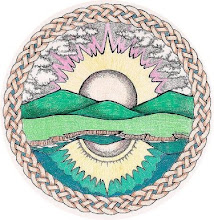Article, originally posted in the Frederick News Post, Religion and Ethics, June 14, 2008, excerpted from a full-length work in progress: The Middle East Crisis In My Backyard by M. Anastasia Rosen-Jones with Marge Hulburt.
When I was a little girl, as far as I knew there were no strangers. To me, a community was a place where you knew everybody, and everybody knew and cared about you. With three movie theatres on our main street, one of my favorite adventures back then was a Saturday afternoon double feature. When I was old enough to go by myself, a directive from my father went something like this,
“When you’re done at the movies, go to Joe Gardner’s store (or someone else’s). Tell him who you are (meaning my father’s daughter), and use his telephone to call me to pick you up.”Certainly I was known here. My family was known. I belonged to everyone around me. We all belonged to one another. I was safe and secure, and I knew it. We were a “community.” On my own as a young adult in Washington, D.C., I made a handful of mistakes, particularly confusing the friendliness I experienced there as like that of my childhood small town. In spite of a successful career, the school of hard-knocks taught me a thing or two in fast-track D.C., prompting me to begin what was to become a lifelong quest to recapture the early community connectedness I had left behind.
In years to come, my instinct for “exceptional” community life would turn into a passion for intentionally creating healing communities. In 2005, I developed a non-profit community development and violence prevention training program called the Small “Zones of Peace” Project. Over the past few years, this project has become both a pathway to personal peace and a rewarding chance to join with other like-minded individuals, groups and organizations in building an exceptional community life in Frederick County. My inclination to help build an exceptional community – one that strives to manifest the highest principles of humanity, especially peace and justice – began to gather momentum in August, 2006, when a Jewish/Muslim controversy broke out in our Frederick County backyard.
Against a background of the wars in Iraq and the Middle East, the Small “Zones of Peace” Project was in a position to help untangle this volatile community crisis – thinking globally, acting locally. Additionally, my Jewish heritage, born and bred in a small, quiet mid-western town, gave me a particularly sensitive community view of the episode. I welcomed the opportunity to orchestrate and be part of a Jewish delegation which met with Imam Hendi to reconcile the dispute. One of the outcomes was a joint Jewish/Muslim celebration in December, 2006.
Not content to simply discontinue this local reconciliation process with world-wide implications with this opening conversation, my dedication to building exceptional communities eventually led me to further conversations to help subdue other polarization problems in the county. On the initial issue, my most heartwarming discourses were with Rabbi Morris Kosman. These took me back to my ancestry and the sense of having a special place in the Jewish community set within the larger community.
When Hood College sponsored a panel of Christian, Jewish and Muslim women to speak of their difficulties living in Israel, it was clear from the standing-room only audience that the local hunger for dialogue, particularly related to the flow of the Middle East crisis into our backyard, had become immense. From these seemingly coincidental events, began the next phase of our project, the Small “Zones Of Peace” Conversations Project.
Volunteers are now creating conversation forums with the hope of deepening community connections throughout our county. For me, personally, an outstanding attribute of the project is its capacity to cultivate, often underdeveloped human characteristics such as compassion, and courtesy that are essential in building exceptional communities; communities wherein someday violence could even become obsolete.
The quote from Mahatma Gandhi, from which our project’s name is drawn, exemplifies the project’s mission:
“We do best to begin by carving out territories or zones of peace in our personal relations where violence and deceit won’t be used.”I’ve come to realize my own path to peace is an inner process of creating and re-creating, time and again, peace inside myself, followed by an outward effort to connect with others; one-on-one, in small intimate groups, within businesses and organizations and even county-wide through meaningful, heartfelt dialogue.
Justice and peace live in Frederick County through the hearts and souls of the many dedicated individuals who willingly put their time and effort into such dialogues with no other agenda than doing the right thing in terms of people and peace-building.
I am grateful to be among them. Now, as I walk along N. Market Street, I know store owners, and I’m greeted by welcoming faces. I’m at home in Frederick County, a community that is striving to be exceptional.
From a full-length work in progress: The Middle East Crisis (In My Backyard) by M. Anastasia Rosen-Jones with Marge Hulburt. Anastasia Rosen-Jones is a retired psychotherapist and the founder and director of the Small “Zones Of Peace” project. She is the author of six full=length works in progress, including the Middle East Crisis (In My Backyard) and numerous articles.

No comments:
Post a Comment